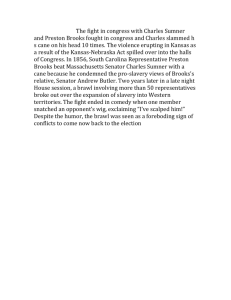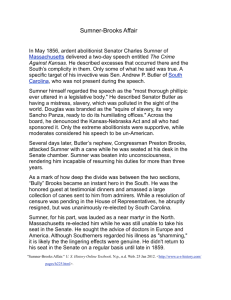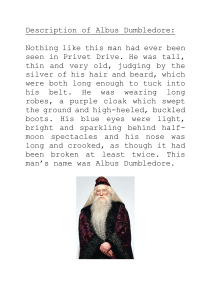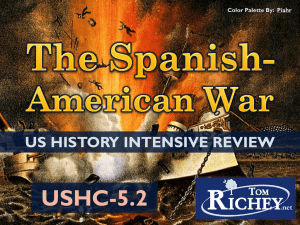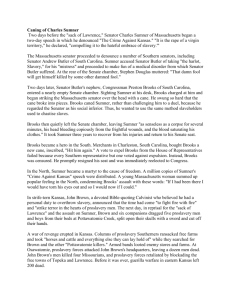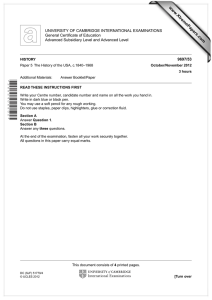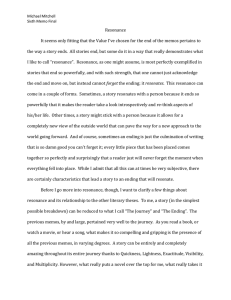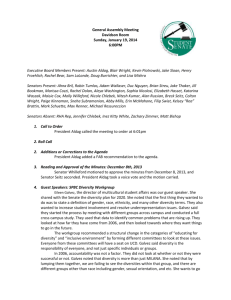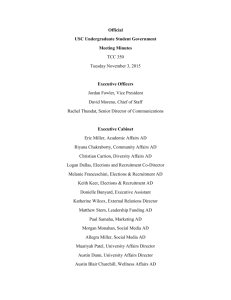Why History Matters
advertisement
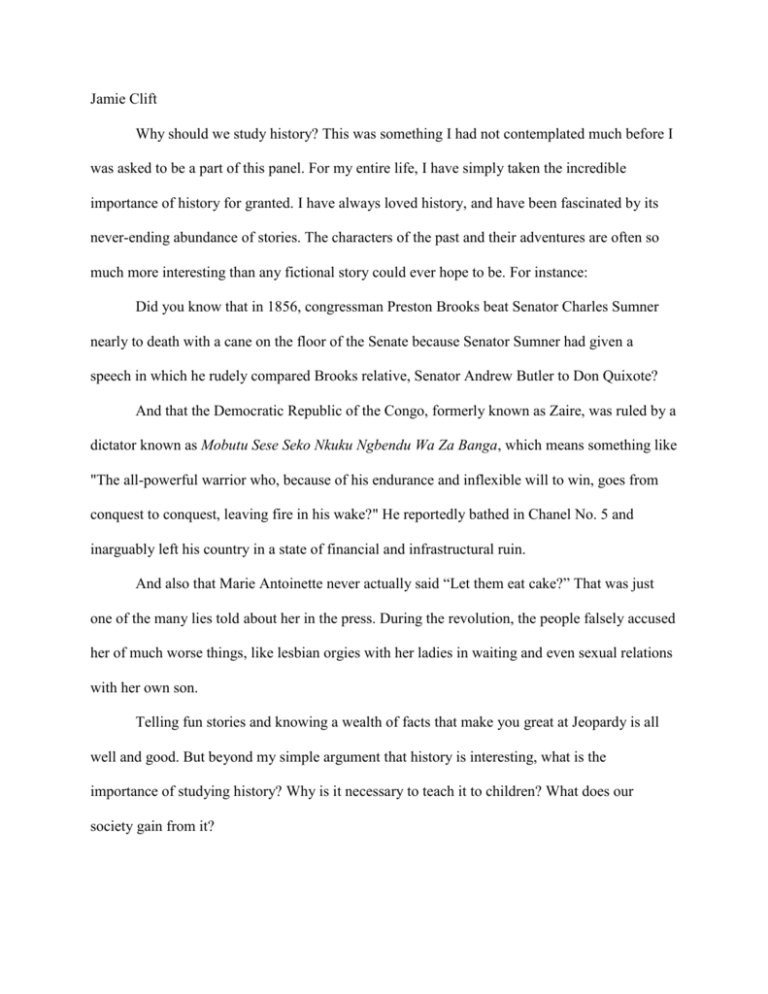
Jamie Clift Why should we study history? This was something I had not contemplated much before I was asked to be a part of this panel. For my entire life, I have simply taken the incredible importance of history for granted. I have always loved history, and have been fascinated by its never-ending abundance of stories. The characters of the past and their adventures are often so much more interesting than any fictional story could ever hope to be. For instance: Did you know that in 1856, congressman Preston Brooks beat Senator Charles Sumner nearly to death with a cane on the floor of the Senate because Senator Sumner had given a speech in which he rudely compared Brooks relative, Senator Andrew Butler to Don Quixote? And that the Democratic Republic of the Congo, formerly known as Zaire, was ruled by a dictator known as Mobutu Sese Seko Nkuku Ngbendu Wa Za Banga, which means something like "The all-powerful warrior who, because of his endurance and inflexible will to win, goes from conquest to conquest, leaving fire in his wake?" He reportedly bathed in Chanel No. 5 and inarguably left his country in a state of financial and infrastructural ruin. And also that Marie Antoinette never actually said “Let them eat cake?” That was just one of the many lies told about her in the press. During the revolution, the people falsely accused her of much worse things, like lesbian orgies with her ladies in waiting and even sexual relations with her own son. Telling fun stories and knowing a wealth of facts that make you great at Jeopardy is all well and good. But beyond my simple argument that history is interesting, what is the importance of studying history? Why is it necessary to teach it to children? What does our society gain from it? The important thing for people to realize is that studying history is so much more than the simple memorization of dates and the recitation of facts. To study history is to develop a greater understanding of humanity, where we have been and where we are headed. There is one incredibly clichéd phrase which I am sure that all of you were expecting to hear from us tonight: “He who does not learn history is doomed to repeat it.” I don’t agree. History never really repeats itself, it only produces the vaguest hints of déjà vu. History is not cyclical, rather, it moves ever forward into the unknowable future, and while we can take valuable lessons from those who came before us, works of history are not guidebooks to the future. The true merit to history lies in the fact that it is key in understanding the present. It answers questions about things all around us, from the names of towns to the causes of war. We must study history because it provides a valuable context for interpreting current events. How can you understand or appreciate the customs of a foreign country without knowing the reasoning behind them? How can you endeavor to solve a crisis without knowing why it exists in the first place? You simply cannot understand current events without understanding history. This is like reading the final chapter of a book without any knowledge of the rest of its contents. The fact that Snape kills Dumbledore means literally nothing to you, unless you know who Snape and Dumbledore are and what is happening around them. So, for instance, if you want to implement policies to foster peace in the Middle East, you must begin with studying the history of the conflict there. Quite simply, history is what makes the world around us make sense. It is the how and why of who we are, where we are, and what we are doing. Having a well rounded knowledge of history, therefore, gives someone a very practical general knowledge of the world around them which someone who lacks this sort of education simply does not have. People who have an education in history are better prepared to connect with others from different backgrounds and to provide valuable insight on social and political affairs. These are the sorts of skills that make people suitable to be leaders in their communities. So while history is interesting and fun, its real merits lie in its undeniable usefulness. The past may seem distant, but it is all around us, and it is a very practical thing to study.
